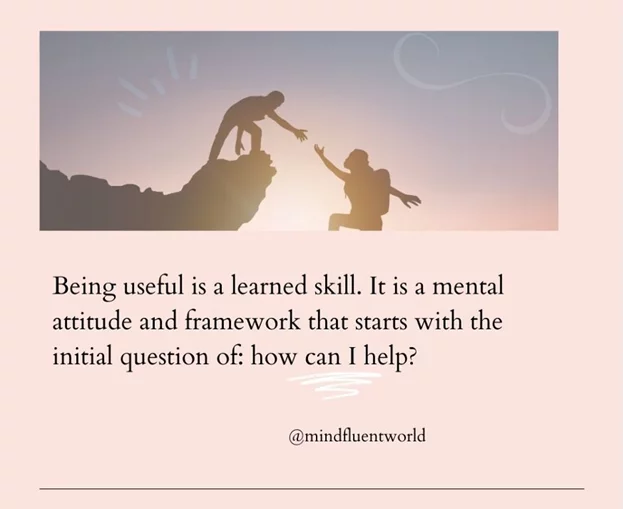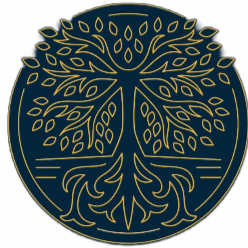
The importance of being useful
Very often I ask to myself a question of how am I making the best of my time every day in my daily routine, then try to dwell more on why and what are the results I take, wondering if what I get has certain values or be considered useful.
As we are born with the free will and clear conscience, upon which we act, take decisions, handle everyday situations, we create a landscape of our own reality. The choices we take from the moment we open our eyes in the morning until the very moment of sleep it yields the result of the day.
Technology on the other side and the use of social media are bringing new interpersonal challenges to the human experience that in many cases isn’t sending them anywhere. New platforms pop up every day to try and capitalize on some sort of micro-issues, all adding to the sense of overload that many of us are now feeling when it comes to how social media fits into our lives. Adults and teenagers are reporting higher levels of anxiety and depression. Infidelity is on the rise due to inappropriate usage of apps and social media. The truth is technology will continue to advance at a rapid rate and that is very good in fact, the concerning fact is whether we, as humans are ready and are we being truly useful with all of this. We need to determine how to make use of our modern tools in front of us, and find ways how to protect our usefulness and happiness as human beings.
One of the biggest and most important aspect of human kind’s creation is without a doubt the fact that we are useful creatures. This is the most natural thought that comes to mind when we ponder on the purpose of our presence in this world. We are capable of offering solutions to any challenge that arises, we learn to develop skills upon every hardship that bestows upon us, and we carve up chances and opportunities to grow continuously. It is a basic notion on why we have endured everything so far. However, we are rapidly relying on other factors and on other services to do the things we need to do. We are relying on technology to do most of the work for us, and as a result slowly we are forgetting to be useful in this society. We are forgetting the fact that we can be a good person, a helping father, a compassionate mother, a loving son, a caring daughter, an inspiring teacher, a skillful craftsman, a great cook, an amazing actor, and many more other things. We are somehow neglecting the very innate abilities and capabilities that make us truly loving creatures. In short, we are becoming useless, and this is really concerning.
The beautiful truth is that usefulness is a learned skill. It is a mental attitude and framework that starts with the initial question of: how can I help? None of us arrive in the world fully formed and asking ourselves: how can I be useful? Selfish and self-absorbed by nature, we need to be taught how to be useful. We see others being useful and we desire to follow it, whether this is family members growing up or mentors throughout our life, we mimic the values that are displayed around us. If we did not have those role models growing up, we can pick a new role model now as adults. And we can teach ourselves how to be useful by looking for opportunities to contribute. We may not be confident or even competent in this yet, but that’s the key: usefulness gets us out of our own heads and attitudes and places us at the service of others. Determination and resourcefulness cover a mass of missteps and work-in-progress efforts. An attitude of usefulness is like a muscle: it will get stronger and abler the more you exercise it.
But usefulness is not just in physical aspects and physical duties that we do. It can also be shown through skills, mental abilities, or emotional intelligence. We encounter all different types of usefulness each day. I know individuals whose greatest usefulness to others is their ability to listen and empathize, allowing others to voice their concerns and fears without fear of judgment or rejection. Some others have the ability to show immense care and support to those close to him or her. Still others’ usefulness is found in their willingness to pray for others. Perhaps one’s usefulness is in their willingness to be hospitable or to simply call others and check in with them. Usefulness does not have a minimum threshold; it is found in tasks both large and small, and for the majority of us it is in the very ordinary things of each day (Bernard J. Bonner, Ph.D., 2012).

Being useful also dictates happiness. Being able to do something, to start and finish a task, to help someone achieve success, to protect others from falling, being kind by landing a helping hand are all connected to the fact of bringing about true happiness, according to long research by Dr. Martin Seligman, a psychologist from the University of Pennsylvania, who has extensively studied the factors of authentic happiness. In the context of our discussion here, his work informs us about how to look and experience ourselves differently, seeking to become more aware of who we are rather than the occupation in which we find ourselves or the responsibilities we assume. Pursuing the act of kindness underlines the usefulness in greater scale, while various studies show evidence that kindness makes us feel better as it increases the level of oxytocin, a hormone responsible for love and happiness, as a response that everything you do with the pure heart and intention, it always bounces back with multiplied benefits for the doer.
Therefore, show up, be useful, matter to your community. Make a mark such that it is noticed when you are not there. And in case when you can’t really do much because the circumstances have not allowed you, then at least be nice to them, smile and speak good words.
© Mindfluent

